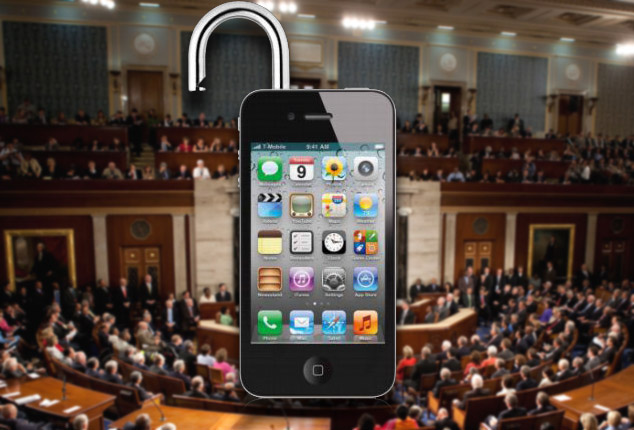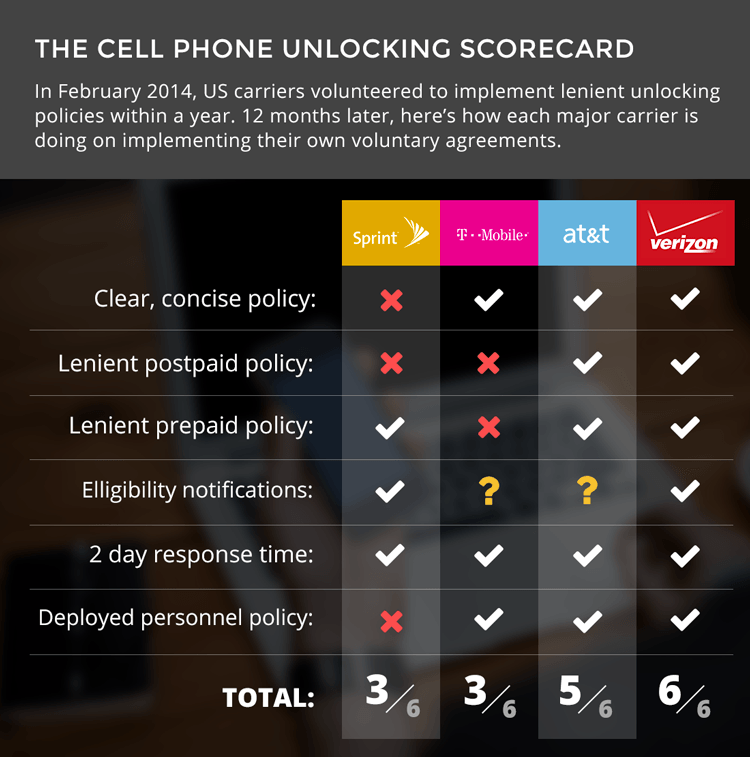Updated with T-Mobile comments 2/18 3:45PM PST
All the major wireless companies pledged in 2013 to make it reasonably easy for subscribers to unlock their smartphones after their contracts expire, but Sprint and T-Mobile forgot to actually do it.
That’s the thrust of a new report today from Sina Khanifar, the consumer advocate who started a White House phone-unlocking petition that led to a change to the law last year.
In 2013, the wireless carriers, under pressure from the Federal Communications Commission (FCC), came up with six rules for unlocking policies, which they all said they would follow. They are:
- Post clear, concise unlocking policies on public website
- Provide lenient postpaid policies
- Provide lenient prepaid policies
- Provide eligibility notifications to the customer when their devices can be unlocked
- Respond to unlock requests within two business days
- Unlock devices to deployed military personnel
The 2013 agreement between the FCC and the carriers’ trade group, the CTIA, was that the carrier must have complied with three of the six principles by May 11, 2014, and with all six by Feb. 11, 2015.
The last deadline just passed, and, Khanifar told VentureBeat in email, hundreds of news stories came out saying that the carriers had complied with reasonable unlocking rules.
But after Khanifar combed through the actual written policies of the carriers, he found a different story. Three of the four major carriers have not complied with the six principles, he wrote. And Sprint and T-Mobile have — in practice — complied with only half of them. AT&T complied with five of the six, and Verizon complied with all six.
See this handy graphic to keep score:
T-Mobile took serious issue with Khanifar’s findings.
“T-Mobile is in 100 percent compliance with the CTIA requirements,” says T-Mobile spokesperson Katie Recken. “In fact, we worked with the FCC and CTIA on the voluntary agreement to make sure our policy was in compliance (and we were in compliance ahead of the February 11 deadline).”
“In fact, in some areas, our policy is actually more lenient and consumer-friendly than our competitors,” Recken writes. “For example, whereas AT&T requires a 60-day waiting period and we only require a 40-day waiting period on postpaid phones.”
The furor over the right to unlock really got going in 2012, when the Librarian of Congress James Billington removed an exemption from the Digital Millennium Copyright Act (DMCA) for cellphone unlocking. With no exemption for using third-party software to unlock devices, the only way consumers could break phones and tablets free from carrier’s software locks was by asking the carriers themselves. And that can be frustrating, to say the least.
Congress passed a bill in August 2014 to reinstate a temporary exemption to the DMCA for unlocking, but that exemption will expire later in 2015.
“There’s a simple and easy fix to all this,” Khanifar wrote in the blog post. “Congress could pass a bill clearly stating that it’s not illegal to circumvent a lock as long as there’s no intention of copyright infringement.”
VentureBeat's mission is to be a digital town square for technical decision-makers to gain knowledge about transformative enterprise technology and transact. Learn More


